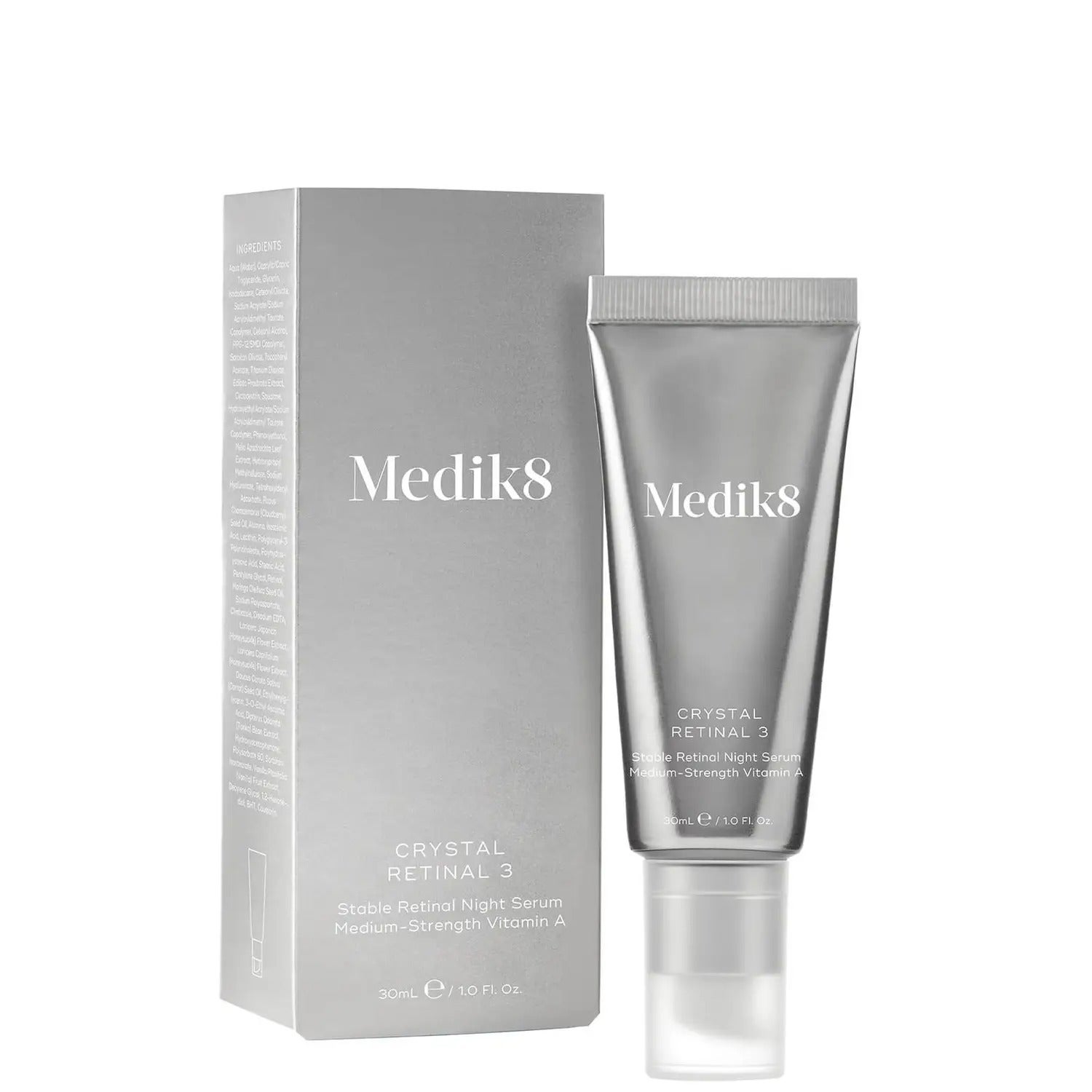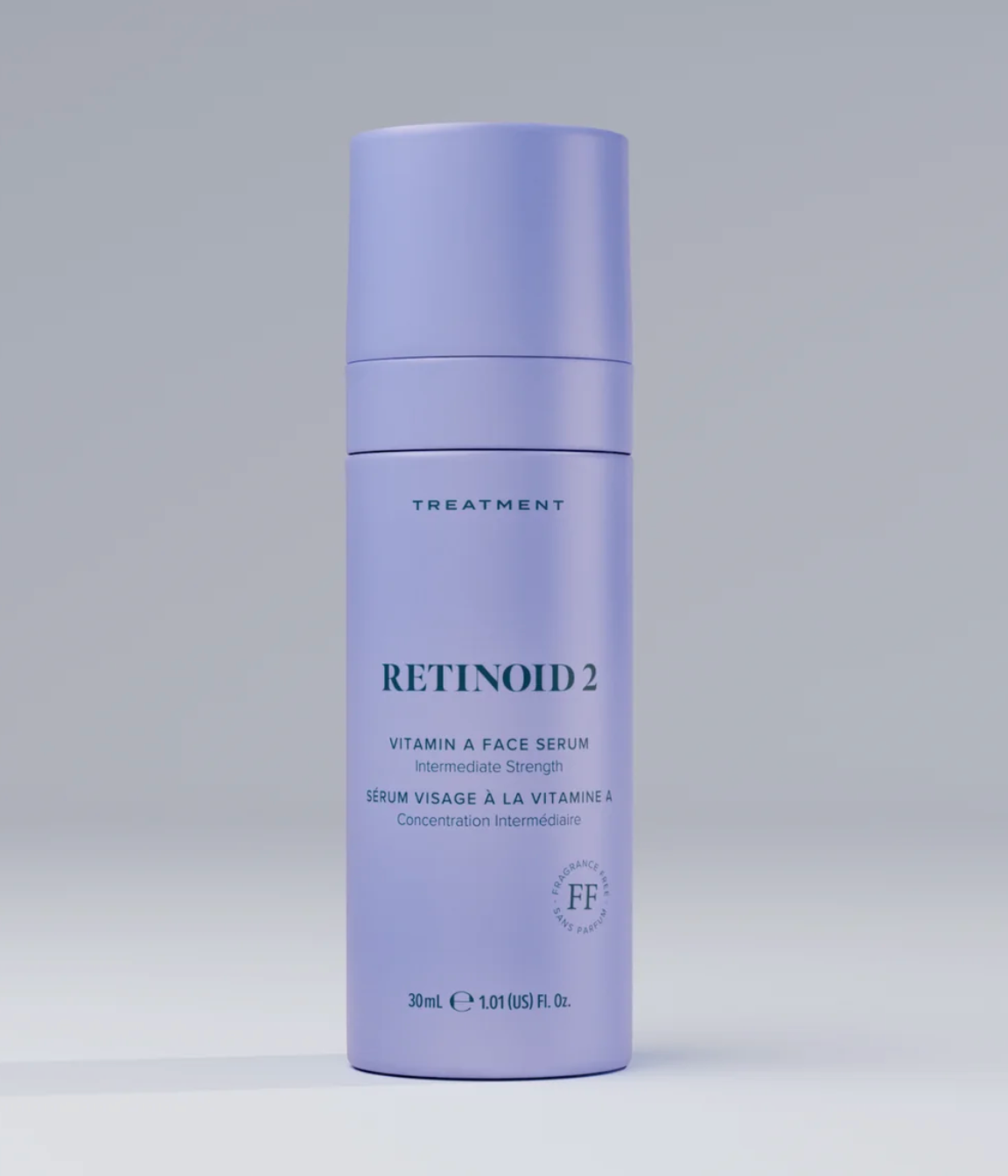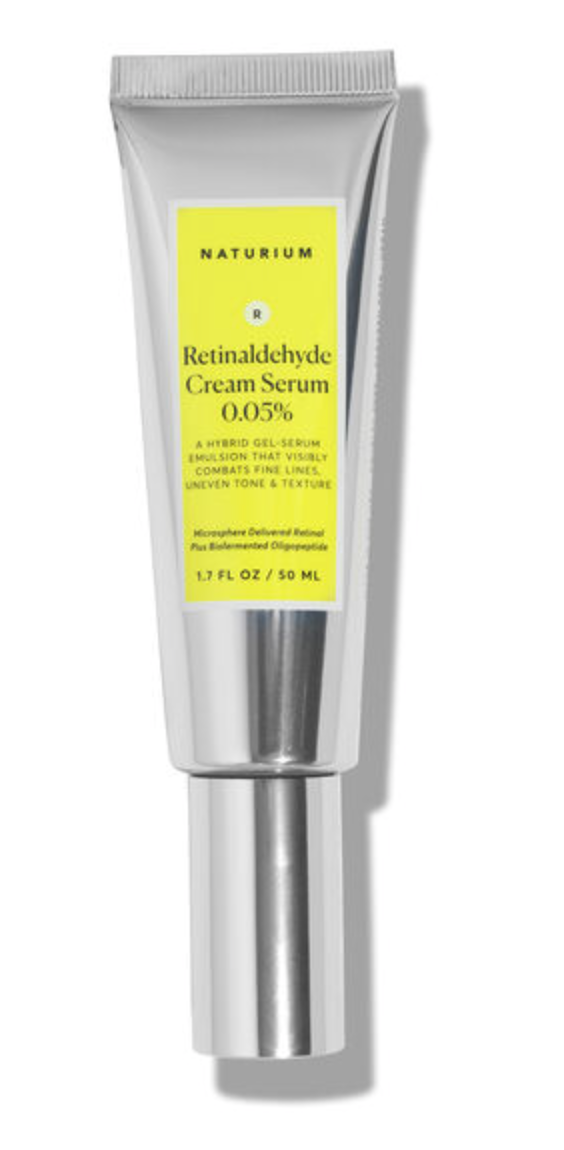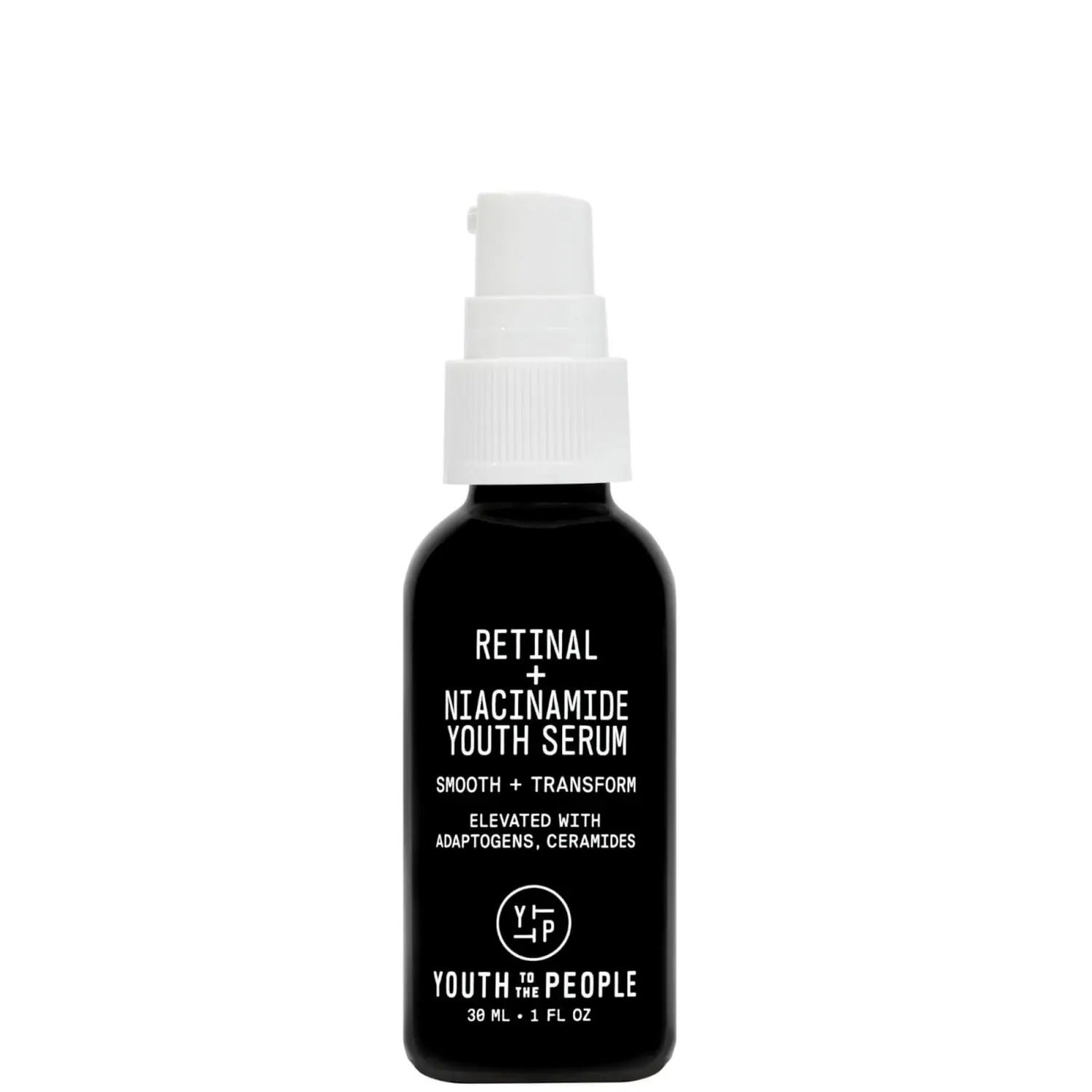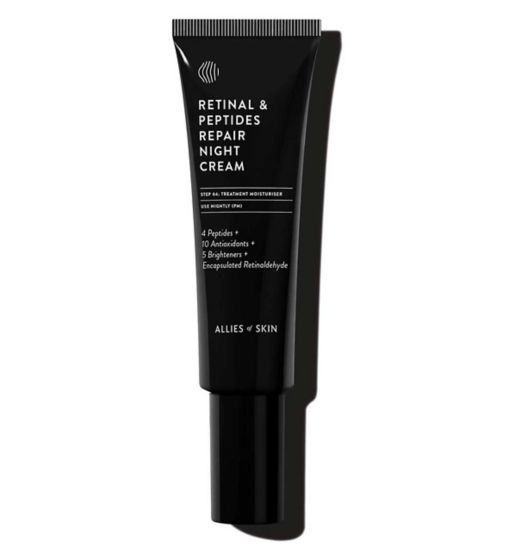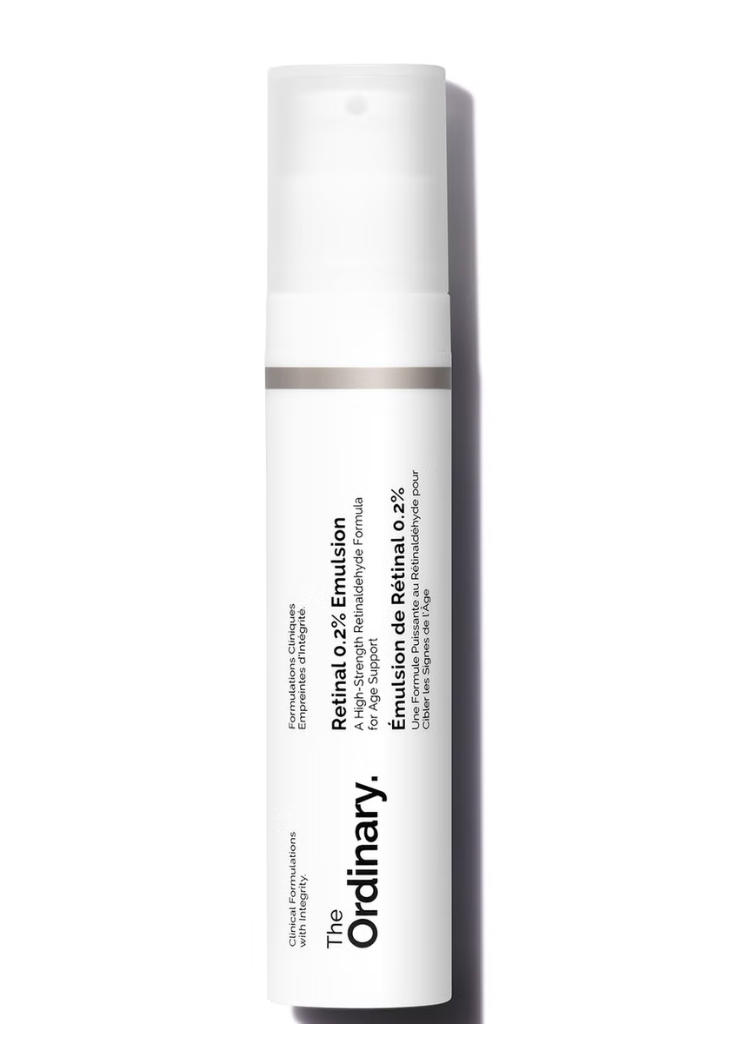All linked products are independently selected by our editors. If you purchase any of these products, we may earn a commission.
From Korean sunscreens to preventative botox, it seems there's a new and buzz-worthy ingredient, formula or treatment to get your head around every week. Some plump up skin whilst others protect it, but nothing has conjured a hype quite like retinol.
Dermatologists recommend it to patients, influencers dedicate entire videos to it and TikTokers have made it go viral (the hashtag #retinol currently has an enormous 141.9 million posts on the app). There's no denying it's the GOAT.
When used consistently, retinol can treat sun-related damage such as dark spots and fine lines, minimise hyperpigmentation (for example, skin staining left behind by spots), smooth out skin texture (even improving breakouts) and kickstart collagen production (making skin appear firm and bouncy). But what if we told you there might be something even better out there?
AdvertisementADVERTISEMENT
Retinol will always have its place in skincare but experts like aesthetician Alicia Lartey and science-led beauty brands like Medik8, Avène and Youth To The People have shelved it for something else.
Enter: retinal.
There might only be a letter's difference in the name but retinal is the seriously souped-up version of the beloved skincare ingredient — and its credentials are even more impressive.
What is retinal and how is it different from retinol?
"Retinal is not to be confused with retinol," says Dr Osman Bashir Tahir, aesthetic doctor and founder of Halcyon Aesthetics. Retinol and retinal are both forms of vitamin A, says Dr Tahir, "but retinal's powerful composition means it takes the results you'd see from using regular forms of retinol products and supercharges them."
Without taking you back in time to a chemistry lesson, Alicia says that when retinol is applied to the skin, it's slowly but surely converted into retinoid acid, which creates all the brilliant skincare benefits mentioned above. Retinal, on the other hand, skips a couple of steps until it becomes retinoic acid, so it gets to work more quickly and effectively.
What are the skincare benefits of retinal?
Daniel Isaacs, director of research at Medik8, says that retinal (sometimes referred to as retinaldehyde on ingredients lists) delivers results up to 11 times faster than classic forms of retinol. "It has significant published studies proving its efficacy. It resurfaces the skin while helping to rebuild collagen," says Daniel, who likens it to prescription-strength skincare that you can only get from a dermatologist.
AdvertisementADVERTISEMENT
Unlike the other forms of vitamin A, retinal is an ideal ingredient for blemish-prone skin, says Daniel. Why? Alicia explains: "The reason some people would say retinal is better for acne-prone skin is because it has a property that allows it to be antimicrobial and kill bacteria. As we know, bacteria is a component that affects acne-prone skin. Killing this bacteria can be a way to reduce acne."
Retinal isn't just great for treating breakouts quickly. "Retinal is a skin-rejuvenating superstar and it's perfect for use on mature skin," says Dr Tahir. It works to speed up the creation of shiny new skin cells and encourages collagen production, both of which, he says, "plump the skin, reduce the visibility of fine lines, brighten the complexion and leave it looking more even-toned."
How do you use retinal and are there any side effects?
While retinol is great, it can be irritating. Cue red, flaky, sore skin that's at the mercy of damaging UV rays from the sun. So is retinal the same? "Generally speaking, if you use too much vitamin A on the skin, or introduce your skin to it too soon, this is when irritation is most likely to occur," says Dr Tahir.
Dr Tahir, Alicia and Daniel suggest introducing retinal into your skincare routine very slowly. "Your skin will need to build up a tolerance to the ingredient before you can start to use it in higher doses," explains Dr Tahir. He suggests starting off with products that have a low percentage or concentration of retinal, for example 0.03%. "Perhaps use it one or two times a week for the first couple of weeks, before stepping it up to every other night for a further two weeks," says Dr Tahir. Used like this, your skin should slowly become acclimatised to retinal. Dr Tahir explains that some people may be able to use it nightly and move on to a higher strength but as it's so powerful, those with younger skin may be better suited to retinol-based products instead of retinal.
AdvertisementADVERTISEMENT
That said, Alicia explains that retinal formulations tend to be more premium and are therefore more likely to have other skin-friendly ingredients in the formula. "These may include peptides [skin-repairing proteins], ceramides [which hold the skin barrier together] and emollients [which moisturise, soothe and hydrate skin]." This type of formulation, says Alicia, can make retinal products less irritating than retinol products. If you are experiencing irritation or you're worried about it, Alicia recommends applying a moisturiser before your retinal product as a buffer.
Like Dr Tahir mentioned, it's best to use retinal products in the evening. In the daytime, wearing SPF is a non-negotiable, says Alicia. "This is especially true when using retinoid products," as they can make the skin very sensitive to sunlight.
What are the best skincare products with retinal?
Retinal may be lesser known than retinol but all the best skincare brands are on board. Both Alicia and Dr Tahir recommend Medik8’s Crystal Retinal Night Serum, £45. One of the brand’s bestsellers for a reason, this serum is available in five strengths so that you can tailor it to your skin type. Daniel recommends strength 1 to those who are very sensitive but suggests starting at strength 3 and working your way up if you want to boost your results.
Besides retinal, there are a handful of other things that make this specific product special. The retinal is coated in moisturising ingredients that break down on contact with the skin. In other words, skin is fed retinal over time and not too quickly. "This avoids any of the well-documented vitamin A side effects that can come with stronger formulations, like flaking and redness," explains Daniel.
AdvertisementADVERTISEMENT
If you've got money to spend, Alicia also likes Allies of Skin Retinal & Peptides Repair Night Cream, £115, or Youth To The People Retinal + Niacinamide Youth Serum, £64, which boasts 5% niacinamide to hydrate, plus moisturising ceramides. On a budget? Try The Ordinary Retinal 0.2% Emulsion, £15.20, which has countless rave reviews.
AdvertisementADVERTISEMENT







